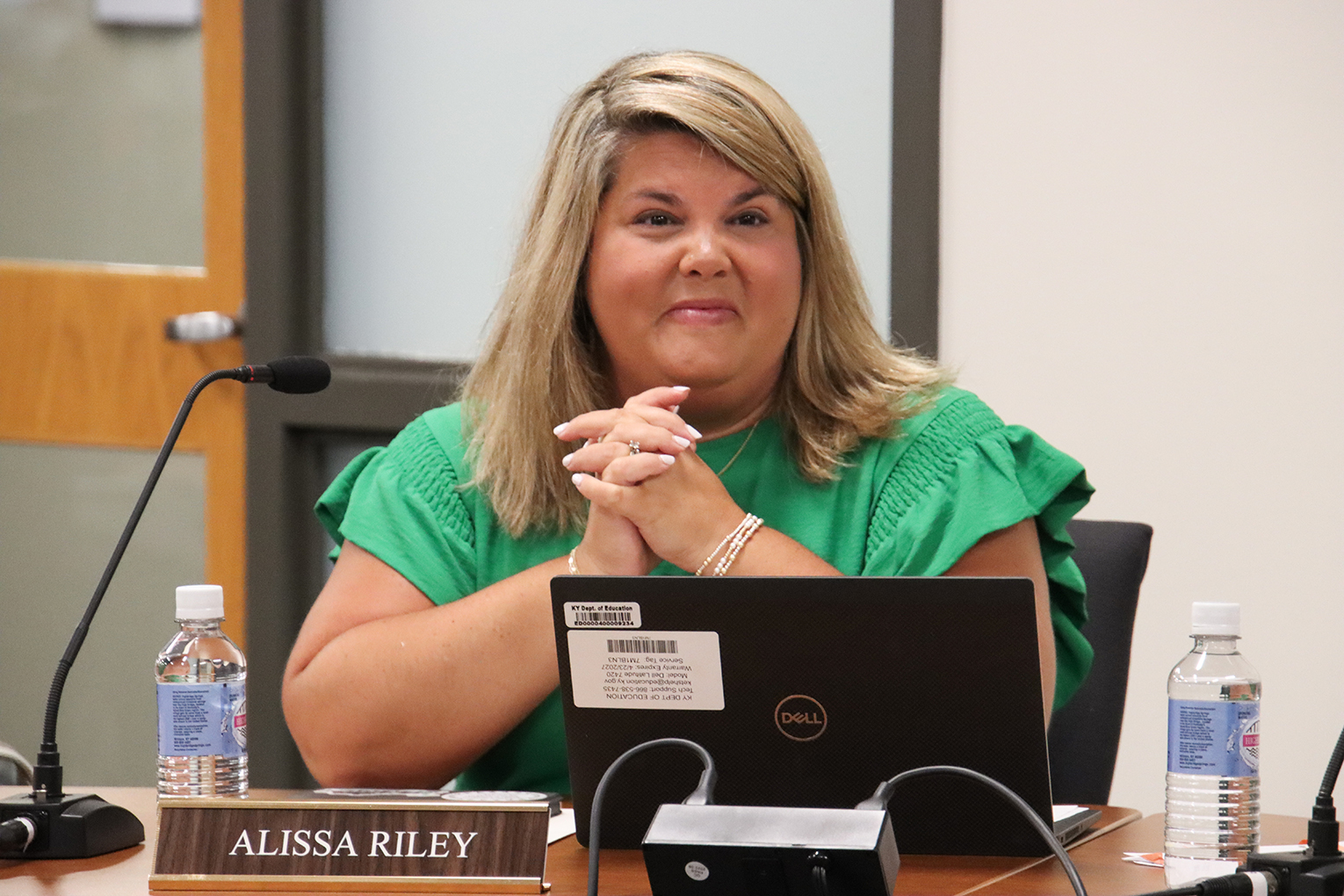By Katrina Boone
katrina.boone@education.ky.gov
My story is a story of dark, silent places — places where my voice was taken from me, where my narrative was written not by the strokes of my own pen, but by the broad and callous actions of forces much larger than me. Too often, I was the object of a sentence and not the subject: The hunger overtook me. My mother took the family to a homeless shelter. He attacked me.
I grew up in Owensboro in a rundown trailer — which often didn’t have running water or heat — with three of my five siblings, a mother who worked overtime and a stepfather who spent his time doing anything but working. My experiences with teachers were the first in which an adult looked at me as if I were important, spoke to me as if I were intelligent and acknowledged me as if I deserved to be acknowledged.
My teachers asked me questions about the things that interested me and then they listened to my answers. They asked me questions about my goals for the future and then they helped me pursue them. They gave me a voice, a sense of myself as a confident, capable young woman on a road that was leading somewhere better than my current circumstances indicated. Despite the turbulence, violence and poverty that I faced in my life, I carried that voice with me. It sustained me and gave me purpose. It spurred me to become a teacher.
I have taught surrounded by highly motivated teachers who work diligently in their classrooms to enrich the lives of their students. But when I Google “the truth about public education,” I find search results more concerned with salaciousness, hyperbole and conspiracy than what goes on in America’s classrooms. It’s easy to find YouTube videos highlighting teacher ineptitude or the ways in which public schools are failing our students, online stories about teacher-student sex scandals and arrest reports, and Facebook links that lampoon the profession we’ve dedicated our lives to enriching.
The resounding negativity here is disturbing, of course, but even more disturbing is that the voices represented by those videos and search results and online stories are not the voices of teachers. The stories that others often tell about us have little to do with what we do in our classrooms every day.
We can change this. We can seek out ways to celebrate our private classroom victories. We can participate in public conversations about issues like how we implement the Kentucky Core Academic Standards, how we advocate for a fully funded teacher retirement system, how we address our part in the achievement gap. We can impact, influence and change the public narrative around public education.
We’ve spent our careers advocating for our students and now it’s time to advocate for our profession and ourselves.
As a teacher leader on special assignment with the Kentucky Department of Education, I hope to engage Kentucky’s teachers in public conversations and provide them resources to heighten the impact of their ideas through an initiative called engagEDKY. Through training and mentoring, engagEDKY teachers will have the opportunity to write op-eds and blogs, create presentations and engage in public conversations about their work. This authentic, teacher-driven model of professional collaboration and learning gives teachers the opportunity to magnify their ideas and cultivate a more realistic, honest view of our profession.
Changing the narrative about education through the media is something we not only owe ourselves and our students, but also the teachers and students of the future. Cultivating a public view of teachers as respected professionals and experts will help retain our best teachers and attract our most promising students to the field. It will facilitate easier conversations with parents and establish relationships with community stakeholders. More than anything else, it will raise our students’ expectations — for us, of course, but also for themselves. Our leadership has the remarkable power to inspire the leadership of our students.
If my life experiences have taught me anything, it’s that if we don’t tell our own stories, someone else will. Do you see yourself in the mirror of the media? Isn’t it about time you did?
Katrina Boone works as a teacher leader on special assignment with the Kentucky Department of Education. In the mornings, she teaches junior English classes at Shelby County High School (Shelbyville), and in the afternoons, she does work to support teacher leadership and educator voice around the state. She is the founder of engagEDKY, an initiative that aims to engage Kentucky’s teachers in public conversations and provide them resources to heighten the impact of their ideas.




Thank you for undertaking this important work!
wow! I always enjoyed the voice & authenticity to your writing. I remember your essays being more than analysis, but an engaging conversation with literature. And I read this now: simply awesome!